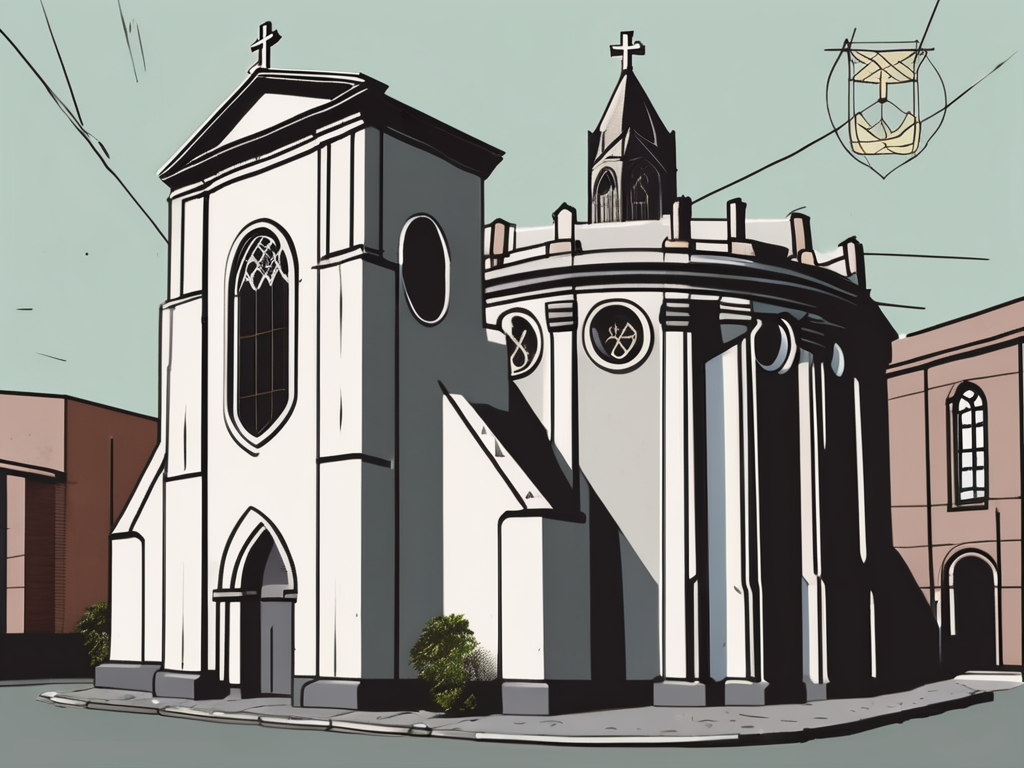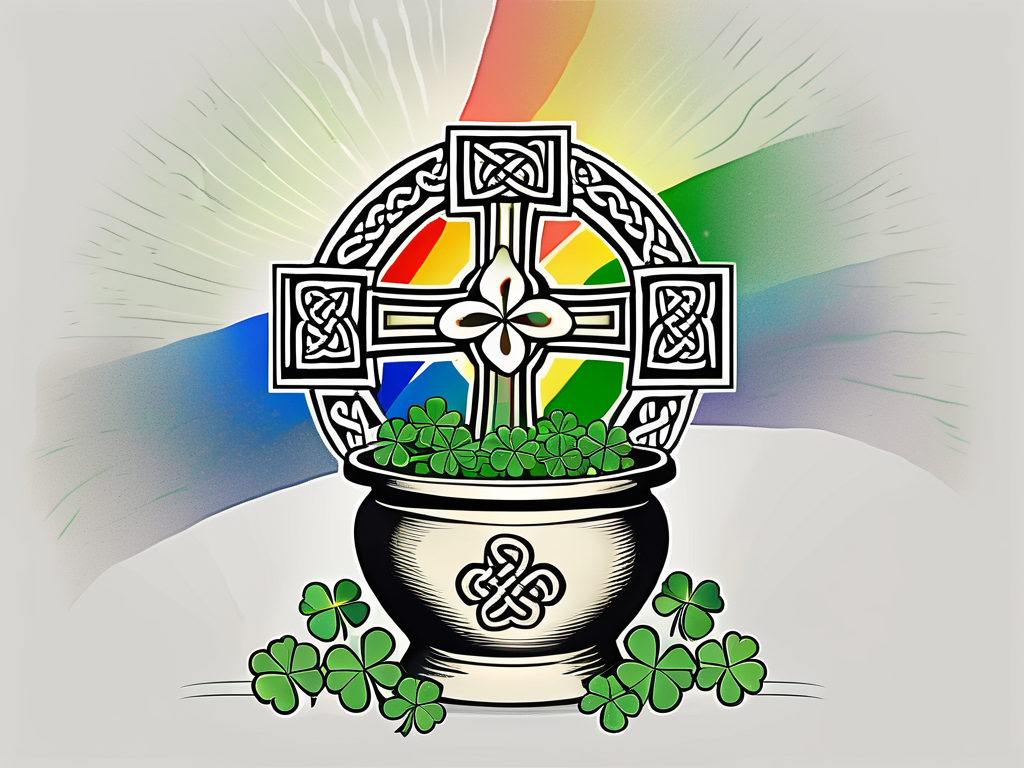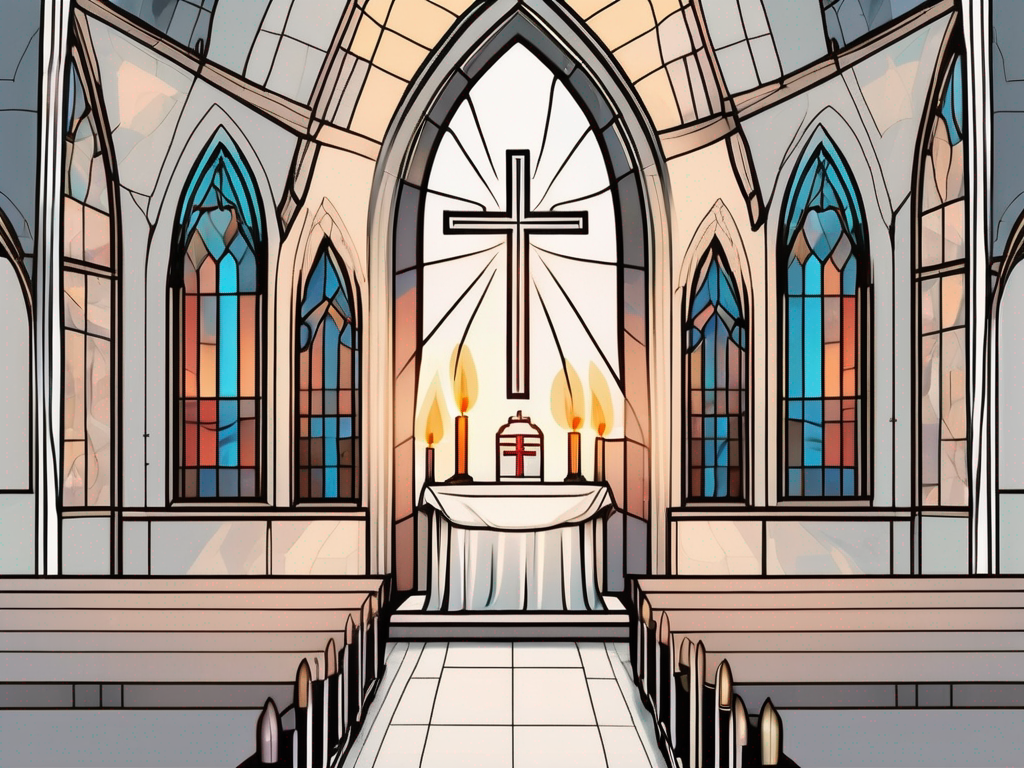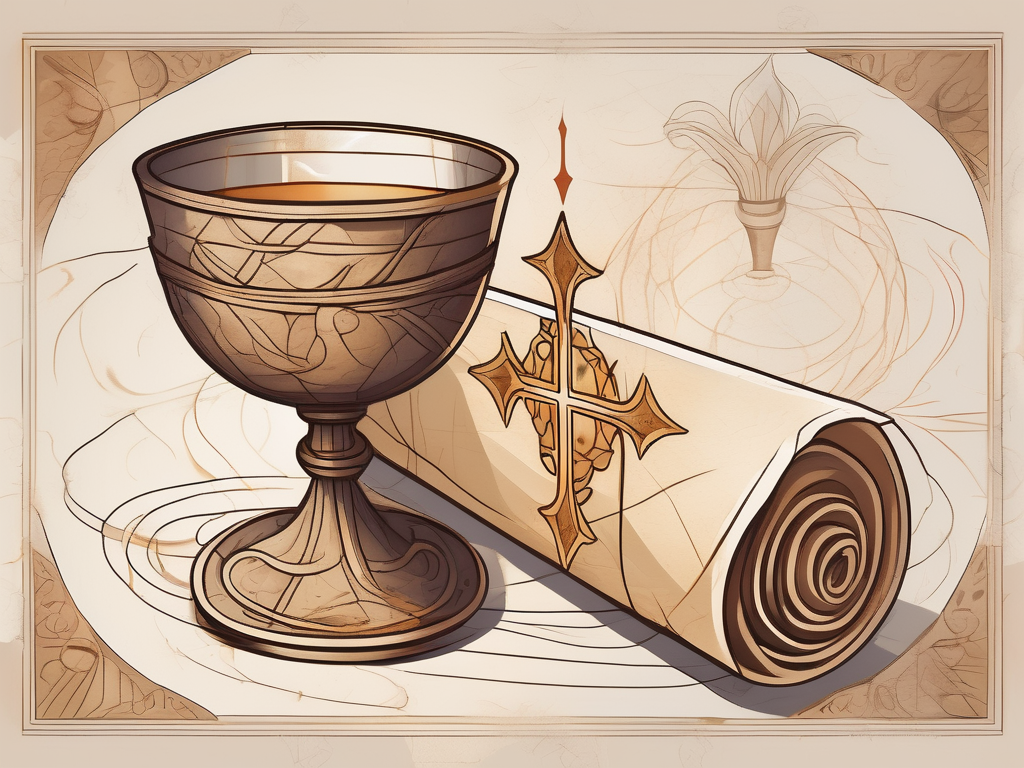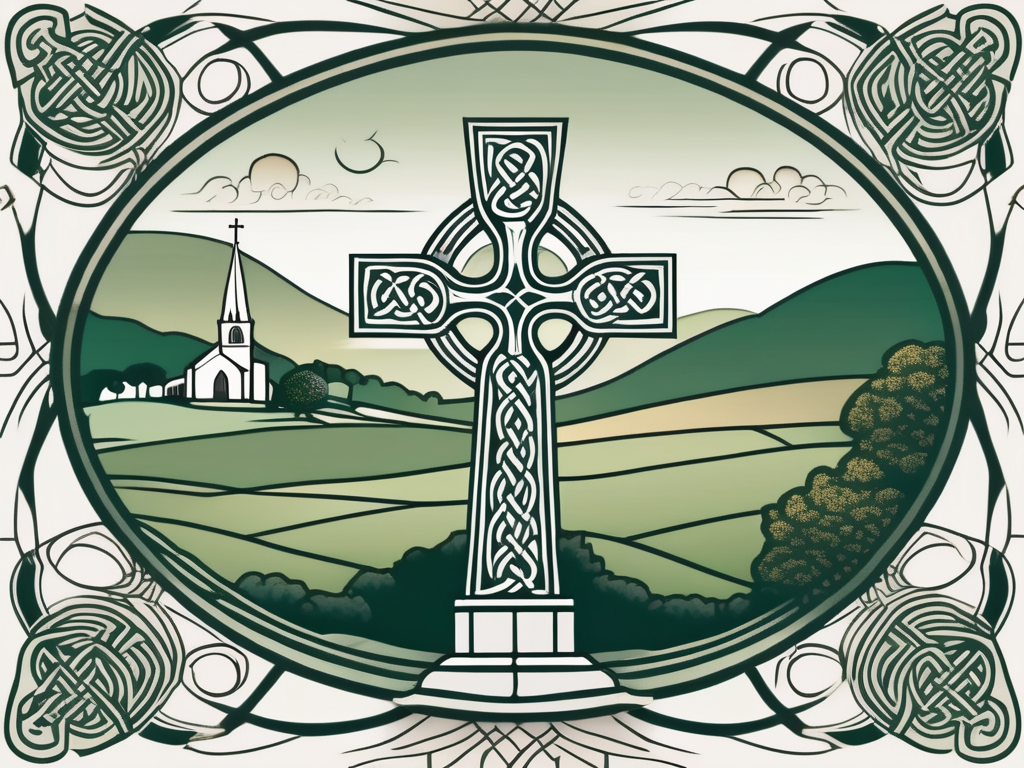Saint Oliver Plunkett was an influential figure in Irish Catholic history. His life story is one of perseverance, faith, and martyrdom. From his humble beginnings to his eventual sainthood, Plunkett’s journey leaves a lasting legacy that continues to inspire Catholics around the world today.
Early Life of Oliver Plunkett
Before he became Saint Oliver Plunkett, he was born into a Catholic family in 1629, during a time of great religious turmoil in Ireland. His father, Patrick, was a farmer, and his mother, Mary, instilled in him a strong Catholic faith from an early age. Growing up in the town of Loughcrew, Oliver witnessed firsthand the challenges faced by Catholics in a predominantly Protestant society.
Birth and Family Background
Oliver Plunkett was born on November 1, 1629, in Loughcrew, County Meath, Ireland. He came from a wealthy and influential family of Anglo-Irish descent. His parents, Patrick and Mary Plunkett, were devout Catholics, and they instilled in Oliver a deep-rooted faith that would shape his life’s path.
Being Catholic in Ireland during this time was no easy task. The Penal Laws enforced strict restrictions on Catholics, leaving them marginalized and discriminated against. Despite these challenges, the Plunkett family maintained their faith and encouraged their young son to pursue his education in order to make a positive impact on society.
Oliver grew up surrounded by the beauty of the Irish countryside. The rolling hills of County Meath served as a backdrop to his childhood, and he often found solace in nature, spending hours exploring the lush green fields and ancient ruins that dotted the landscape. These experiences would later influence his spiritual connection to the natural world.
In addition to his love for nature, Oliver also developed a passion for music. His mother, Mary, was a talented musician, and she taught him how to play various instruments. Music became a source of joy and comfort for Oliver, providing him with an outlet for his emotions and a means of expressing his deep devotion to God.
As Oliver grew older, he became increasingly aware of the injustices faced by Catholics in Ireland. He witnessed firsthand the hardships endured by his family and community, and this fueled his desire to fight for religious freedom and equality.
Education and Early Influences
Oliver’s parents recognized his intellectual abilities and sent him to study at a Jesuit college in Drogheda. Under the guidance of the Jesuit priests, Oliver’s faith deepened, and he developed a passion for learning and the pursuit of knowledge.
During his time in Drogheda, Oliver encountered the works of St. Thomas Aquinas and was profoundly influenced by the teachings of the Catholic Church. He became particularly interested in theology and dedicated himself to a life of service to God and the Church.
Oliver’s education extended beyond the walls of the classroom. He immersed himself in the rich history and culture of Ireland, studying the ancient Gaelic language and folklore. He developed a deep appreciation for his Irish heritage and the resilience of the Irish people in the face of adversity.
As Oliver delved deeper into his studies, he also became involved in the broader political and social issues of the time. He witnessed the devastating effects of the Cromwellian conquest on the Irish population and the continued oppression of Catholics. These experiences further solidified his commitment to fighting for justice and religious freedom.
Oliver Plunkett’s early life was marked by a strong sense of faith, a love for his homeland, and a desire to make a difference in the world. These formative years laid the foundation for his future as a revered saint and martyr, and his unwavering dedication to his beliefs would inspire generations to come.
Journey to Sainthood
Plunkett’s religious calling led him to pursue priesthood, and he was ordained in 1654. He dedicated himself to spreading the Catholic faith and ministering to the spiritual needs of his community. However, his journey was not without its challenges.
Plunkett’s Religious Calling
Oliver Plunkett felt a strong calling from God to serve as a priest and shepherd his flock. His deep faith and commitment to the Catholic Church compelled him to dedicate his life to spiritual service.
Plunkett’s religious calling was not a sudden revelation, but a gradual realization. From a young age, he exhibited a deep reverence for God and a desire to bring others closer to their faith. His family, devout Catholics themselves, nurtured his spiritual growth and encouraged him to explore his vocation.
As he grew older, Plunkett’s conviction to become a priest only intensified. He immersed himself in religious studies, delving into theology, scripture, and the teachings of the Church. His thirst for knowledge was insatiable, and he sought guidance from experienced clergy members who recognized his potential.
Plunkett’s unwavering faith and dedication to his calling set him apart from his peers. While others may have been swayed by worldly temptations or discouraged by the challenges that lay ahead, Plunkett remained steadfast in his pursuit of priesthood.
His decision to answer God’s call was not made lightly. Plunkett understood the sacrifices he would have to make, the hardships he would face, and the responsibility he would bear. Yet, he embraced it all with a sense of purpose and a deep love for God and his fellow believers.
Ordination and Early Priesthood
In 1654, Oliver Plunkett was ordained a priest and began ministering to the Catholic community in Ireland. As tensions between Catholics and Protestants continued to rise, his work became even more important. Plunkett’s determination to spread the Catholic faith in a time of persecution showcased his unwavering commitment to his calling.
Plunkett’s ordination marked the beginning of a new chapter in his life. With the sacrament of Holy Orders, he received the authority to administer the sacraments, preach the Word of God, and guide his flock on their spiritual journey. It was a responsibility he carried with great humility and reverence.
As a newly ordained priest, Plunkett faced numerous challenges. The political and religious climate in Ireland was hostile towards Catholics, and the penal laws imposed severe restrictions on their religious practices. Despite these obstacles, Plunkett remained undeterred.
He traveled from village to village, bringing hope and solace to the Catholic community. Plunkett’s sermons were powerful and inspiring, touching the hearts of those who heard him speak. His words resonated with the faithful, reminding them of the enduring strength of their faith and the importance of staying true to their beliefs.
Despite the risks involved, Plunkett and his fellow priests persevered, providing spiritual guidance and sacraments to the Catholic population. They celebrated Mass in secret, often in hidden locations, to avoid detection by authorities. Plunkett’s humility, compassion, and wisdom endeared him to both clergy and laypeople alike.
Plunkett’s early priesthood was marked by a deep sense of purpose and an unwavering commitment to his calling. He understood the challenges that lay ahead, but he faced them with courage and conviction. His journey to sainthood was just beginning, and little did he know the trials and tribulations that awaited him.
Plunkett as Archbishop of Armagh
Plunkett’s dedication and accomplishments as a priest did not go unnoticed. In 1669, he was appointed the Archbishop of Armagh, the highest ecclesiastical position in Ireland. This appointment would present Plunkett with both triumphs and challenges in his mission to support and defend the Catholic faith.
Challenges and Triumphs
As Archbishop of Armagh, Plunkett faced numerous challenges. The Penal Laws continued to oppress Catholics, and Plunkett worked tirelessly to resist these injustices while fostering unity within the Church.
Despite the challenges he faced, Plunkett managed to rebuild ecclesiastical structures, establish seminaries, and strengthen the Catholic community. His efforts to educate priests and promote religious devotion laid the foundation for a revitalized Catholic Church in Ireland.
Role in the Counter-Reformation
Plunkett played a crucial role in the Counter-Reformation, a period of renewed emphasis on Catholic doctrine and practice. He worked to promote theological education and combat the influence of Protestantism.
Through his teachings, writings, and pastoral work, Plunkett inspired a renewed fervor among Irish Catholics, helping to solidify their faith and resist the pressures of Protestantism. He played a key role in shaping the religious identity of the Catholic Church in Ireland during a critical time in its history.
Trial and Martyrdom
As tensions between Catholics and Protestants continued to escalate, Plunkett became a target for persecution. Accusations of conspiring against the English crown were leveled against him, leading to his arrest and later martyrdom.
Accusations and Arrest
In 1673, Oliver Plunkett was accused of involvement in the “Popish Plot,” a fabricated conspiracy to overthrow King Charles II. Despite a lack of evidence, he was arrested and imprisoned in Dublin Castle, where he awaited trial.
Plunkett’s arrest sent shockwaves throughout the Catholic community, who rallied behind him in support. Despite the efforts to break his spirit, Plunkett remained steadfast in his faith and continued to minister to his fellow prisoners.
Execution and Aftermath
In 1681, Oliver Plunkett was taken from Dublin Castle and brought to London for trial. The trial was fraught with bias and prejudice, and Plunkett was found guilty of treason. He was sentenced to be hanged, drawn, and quartered.
On July 1, 1681, Plunkett was executed at Tyburn, London. His martyrdom left a profound impact on the Catholic community, fueling a renewed sense of devotion and perseverance in the face of religious persecution.
Canonization and Legacy
Oliver Plunkett’s martyrdom did not go unnoticed. His unwavering faith and martyrdom elevated him to sainthood, and he was canonized by Pope Paul VI in 1975. His legacy continues to inspire Catholics around the world.
Path to Canonization
Plunkett’s beatification process began in the early 18th century and culminated in his canonization in 1975. His martyrdom and the miracles attributed to his intercession validated his sanctity and paved the way for his veneration among the faithful.
Today, he is recognized as the patron saint of peace and reconciliation, an enduring reminder of the power of faith in the face of adversity.
Influence on Modern Catholicism
Saint Oliver Plunkett’s life and legacy continue to impact the Catholic Church in Ireland and beyond. His commitment to the Catholic faith and his efforts to protect and promote the Church serve as a reminder of the enduring power of religious devotion and perseverance.
Plunkett’s compassionate spirit, unwavering faith, and dedication to justice inspire Catholics to stand against prejudice and persecution and to embrace a life of service to God and others.
Saint Oliver Plunkett may have lived in tumultuous times, but his example of faith, resilience, and sacrifice continues to shine brightly today. His life reminds us that even in the face of adversity, faith can triumph, leaving a lasting legacy for generations to come.
